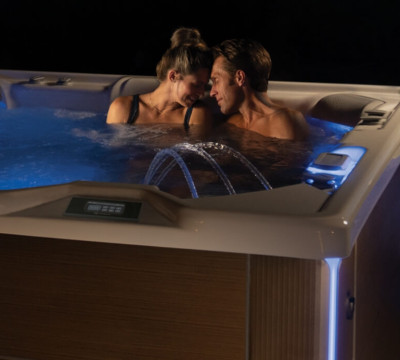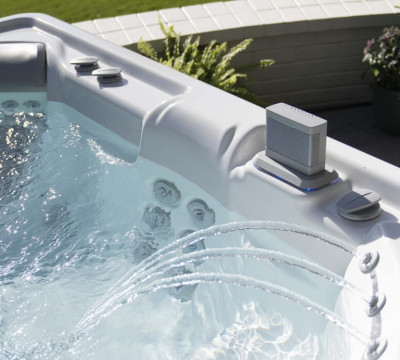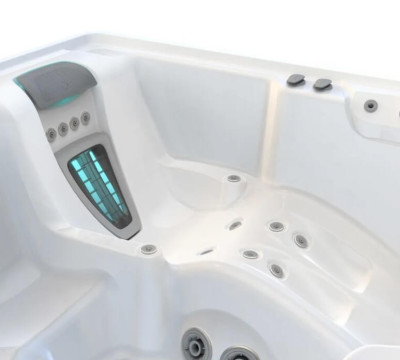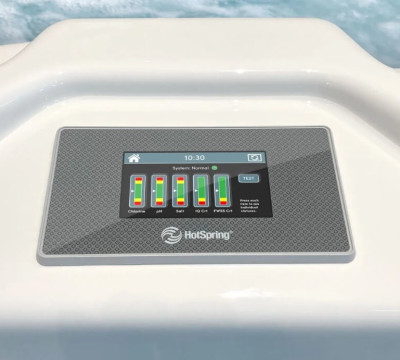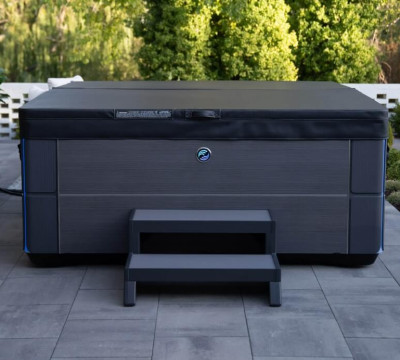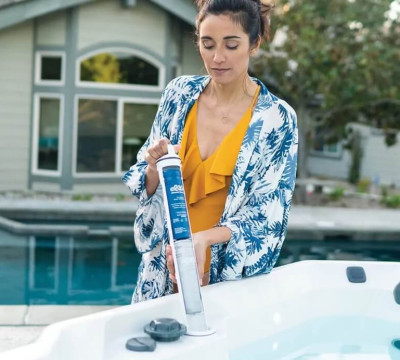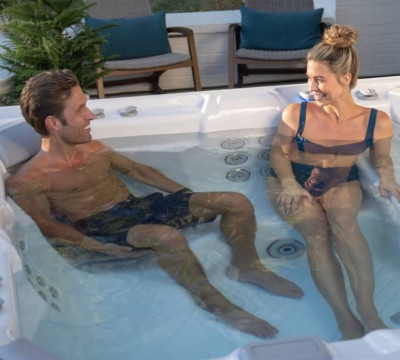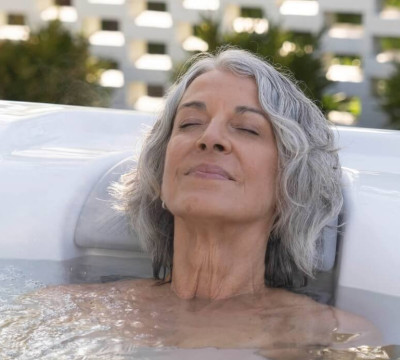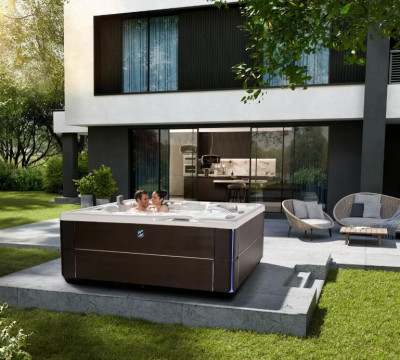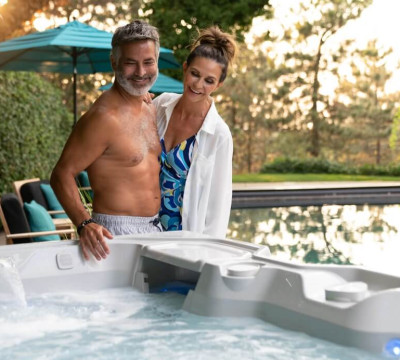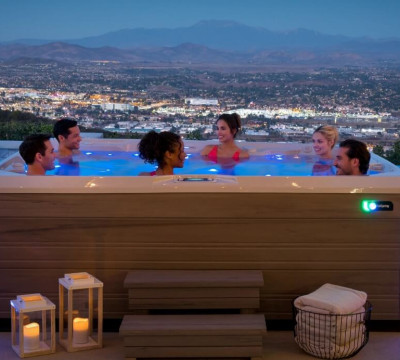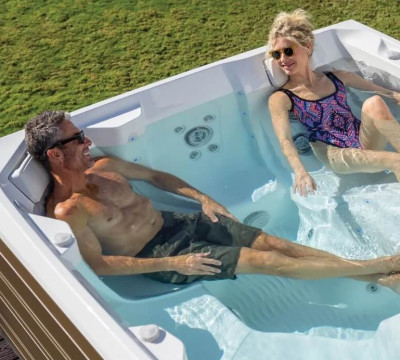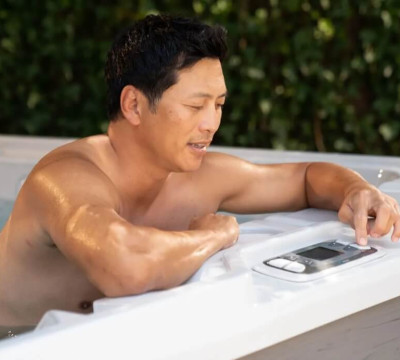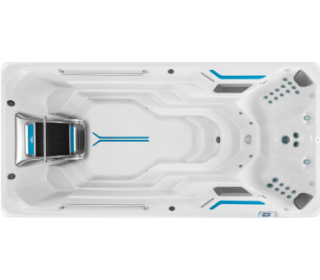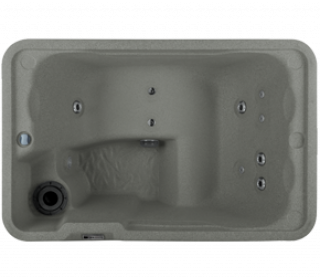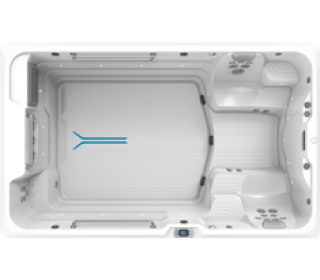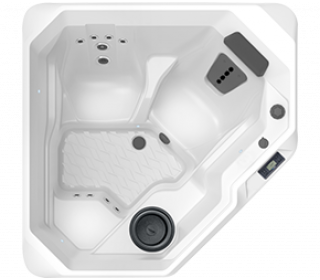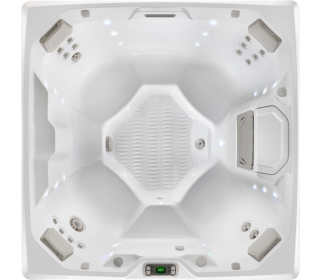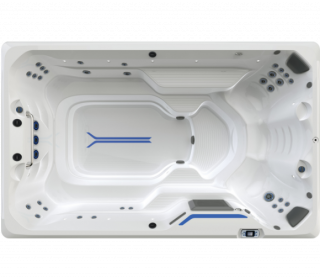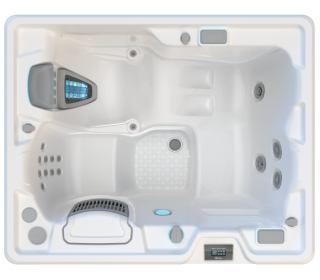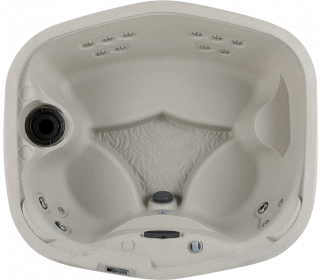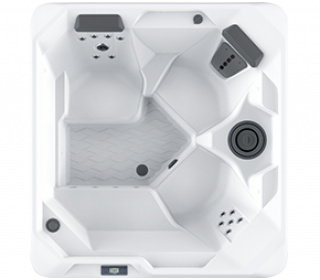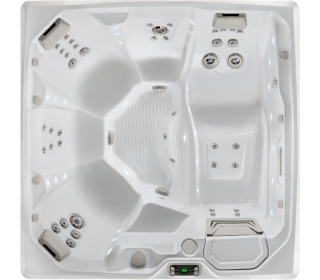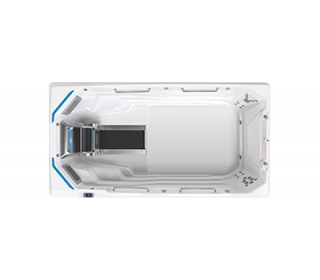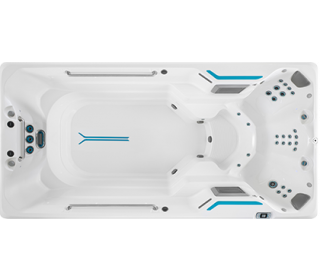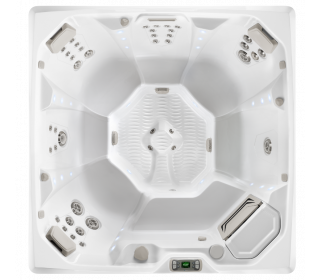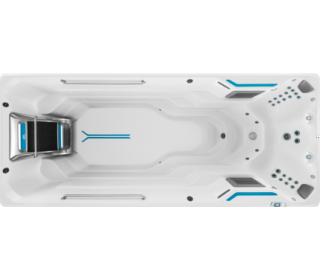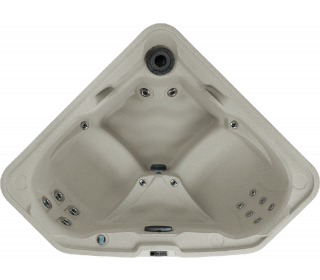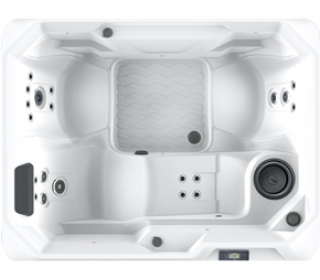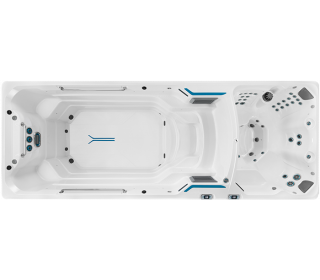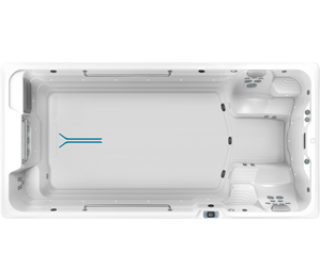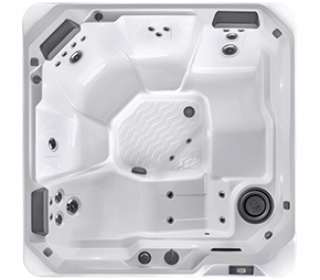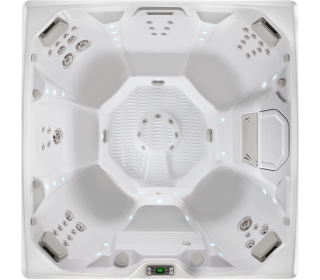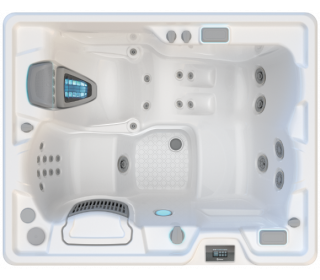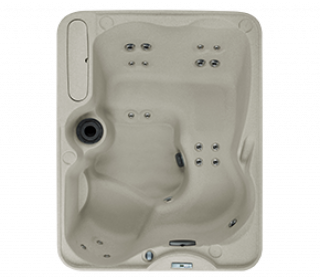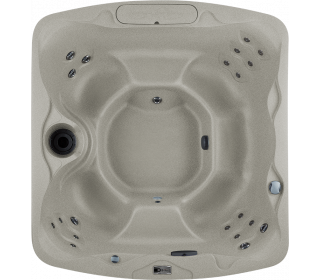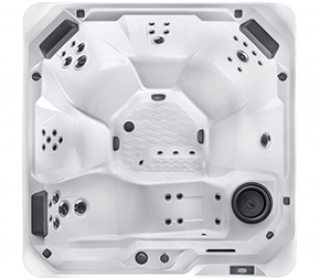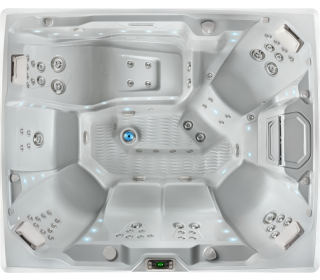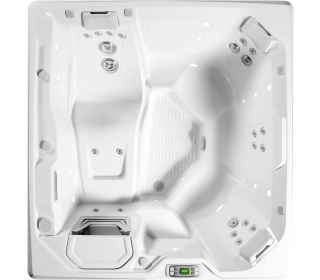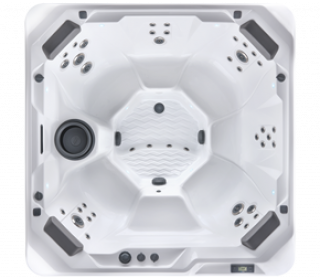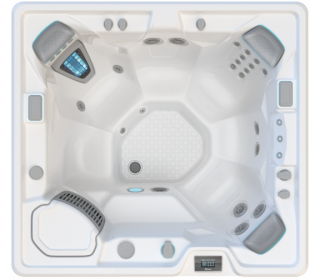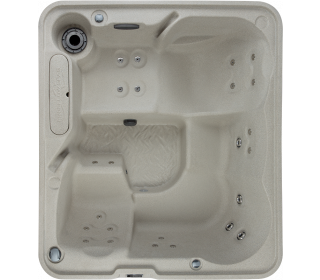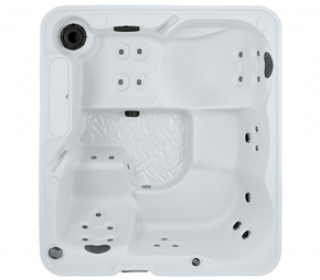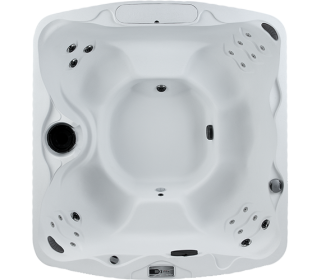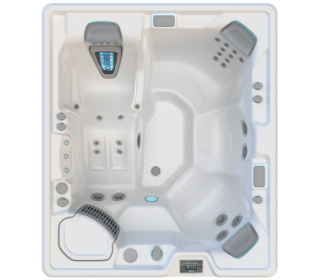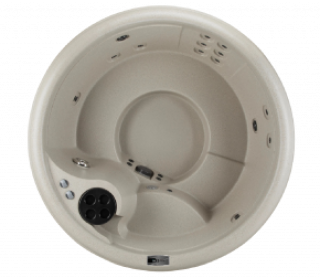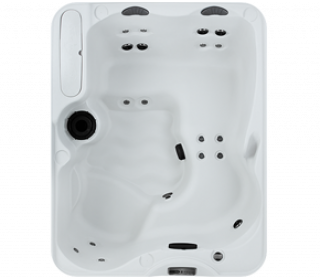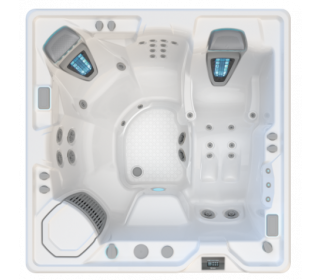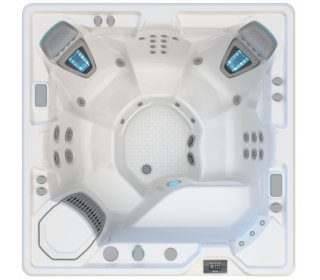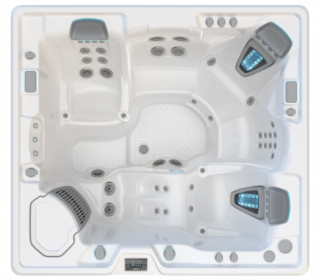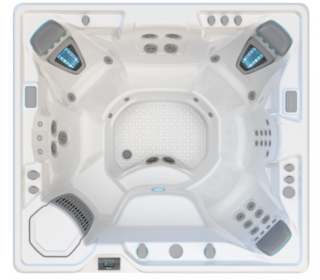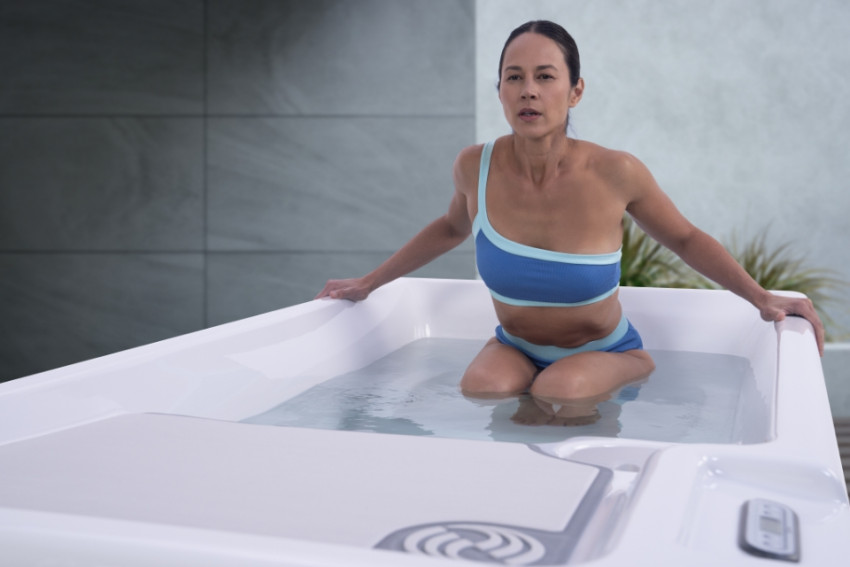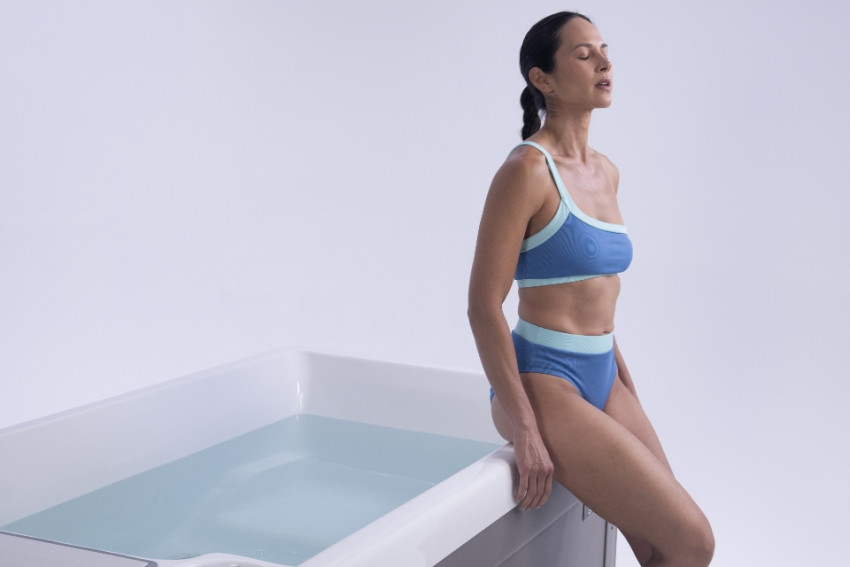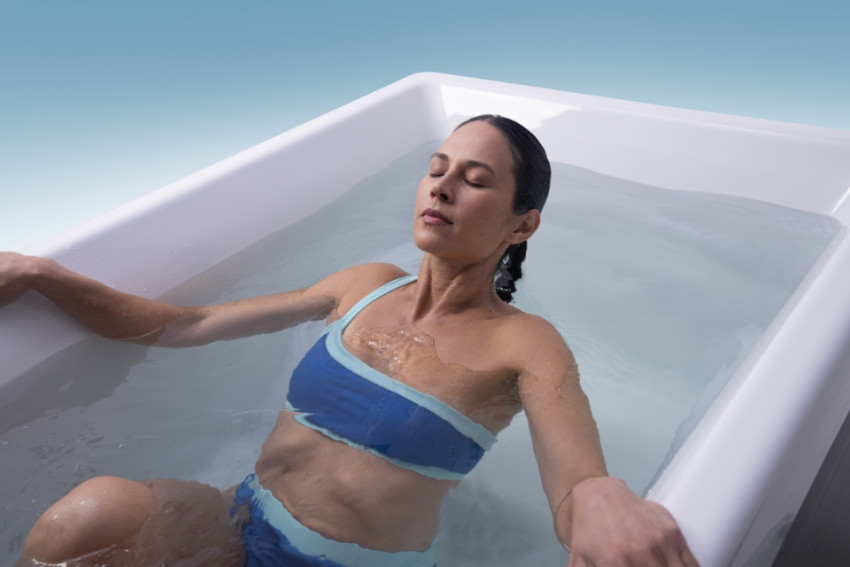A bad night's sleep can leave you groggy, unfocused, and unable to be your best self the next day. When insomnia continues for months or even years, what was once a mild inconvenience can become a debilitating condition.
Millions of Aussies suffer from sleep loss, and many remedies exist to help them get the shut-eye they need. While no one solution will be perfect for everyone, many spa pool owners enthusiastically report that a short soak in a hot tub before bedtime is key to sound sleep.
How might a spa pool help with common sleep problems? Let’s find out.
Why do I have trouble falling asleep?
In Australia daily productivity is at an all-time high - but the price of all this activity is often stress, which in turn affects people’s ability to get a good night's sleep.
As with many countries around the world, our sleep problems are quite serious. About a third of Aussies don’t get enough sleep, while almost 15% of us have chronic insomnia. While the percentage of adults who don't sleep well varies based on location, ethnicity, employment and marital status, no group is unaffected.
With millions of Aussies suffering from sleep problems that vary from the occasional to the chronic, a lot of research is being undertaken in an effort to try and fix the problem. But with over 100 sleeping disorders now recognised, finding an effective cure is proving understandably difficult.
In his ground-breaking book Undoing Perpetual Stress, Dr. Richard O’Connor makes the case that the human brain and nervous system is unable to process the constant stress that most of us now absorb every day. He laments that the healthcare establishment hasn’t been able to adequately help patients with sleeping problems, and notes that technology like light-emitting screens are contributing to the problem.
Some of the most common sleep ailments include:
- Insomnia: What separates occasional trouble sleeping from insomnia is that it becomes a chronic affliction. You often hear people claiming that they have suffered from insomnia the night before, but unless it is diagnosed as a chronic issue then they may just be having temporary trouble sleeping.
- Parasomnias: Otherwise known as night-time sleep behaviours, these disorders are common among children but can happen at any age. They are characterised by unnatural movements, behaviours, emotions, perceptions and dreams that occur in and around sleep (even after you wake up.) These disorders can be brought on by alcohol and drugs (prescription or recreational), and are more often occasional than chronic. Chronic sufferers should seek the advice of a doctor.
- Snoring: Chronic snoring is often a symptom of a larger problem, sleep apnoea. Snoring happens when airways get blocked, preventing sufficient air from getting into our lungs. If you have chronic snoring issues then a doctor should certainly be consulted, as sleep apnoea is a serious condition that can worsen over time.
- Circadian rhythm disorder: Our bodies have an internal, self-regulating clock that tells us when to go to sleep and when to wake up – a cycle known as 'circadian rhythm'. This is the cycle that makes jet lag and shift work so challenging, as it takes time for your circadian rhythm to adjust. A patient diagnosed with circadian rhythm disorder has an internal clock that is either telling their body to sleep or wake up at the wrong time, or that has stopped regulating sleep entirely. This disorder can either be temporary or chronic.
For most of the 25+ million people that call Australia home, a bad night’s sleep is just that – the result of the occasional stressful day, of a disrupted circadian rhythm or an overactive mind. This means that there may be a solution that doesn't involve doctors or drugs.
The effects of bad sleep, and how to avoid them
When you don't get enough sleep, you suffer throughout the day. Chronic sleep loss—sleeping less than the recommended amount for your age group over an extended period of time—can cause stress, cognitive decline, and even increase the risk of high blood pressure, heart disease, obesity and diabetes. Driving and operating heavy machinery while fatigued is very dangerous, your work can suffer, and you can experience nervousness, depression, or mood swings.
Google “help me sleep” and you'll find plenty of advice from all over the world. Many factors influence poor sleep, so while a trip to the doctor is advised in serious cases, a simple change of habits could help. Try things like:
- Turning off lights
- Shutting out noise
- Avoiding day naps
- Staying away from your phone
- Keeping a set bedtime
- Avoiding caffeine and alcohol
- Doing exercise a few hours before bed
- Eating dinner early
- Meditation
It might be surprising to hear that a spa pool represents another alternative, thanks to the healing and relaxing power of warm water immersion.
How does a spa pool or a hot bath help with sleep?
Some spa pool manufacturers will simply tell you that hot tubs help you to sleep better, without an explanation. But here at Hot Spring® we provide the proof behind our claims. So let’s take a look at exactly how a spa pool helps you to sleep better:
- A larger drop in body temperature makes you sleepy: As we begin to get tired our body temperature starts to drop, leading to reduced brain activity and a release of melatonin that helps us to fall asleep faster. By taking a soak in your spa pool two hours before bed, you elevate your body temperature, which leads to a greater decline towards bedtime.
- A soak in a spa pool is a thermal workout: Soaking in hot water enlarges the arteries and increases blood flow bringing more oxygen to the brain. Research indicates that your body responds to time in your spa pool in a similar way to physical exercise. If you have an office job or are unable to be too physically active, a long soak in a spa pool a few hours before bed will help to make you feel tired and fall asleep faster.
- Soaking in a spa pool can reduce anxiety: Firstly, if you are having serious issues with anxiety then you should consult a professional. But beyond this help, soaking in a spa pool can help to relax the mind and relieve the normal stresses of the day, making it easier to fall asleep at night.
- Opens pores and removes toxins from skin: Hot water makes us sweat causing skin pores to enlarge and release any toxins we may have gathered throughout the day. This includes any allergens that could wake you in the night.
- Hot water relaxes muscles: Soaking in hot water has analgesic properties. Pain from lactic acid waste build-up is relieved and the heat is also very therapeutic for muscle or joint soreness.
- Soaking in a spa pool helps to clear your sinuses: Aside from cleansing your skin of allergens, a long soak in a spa pool can loosen mucus in the airways and sinus cavity helping you to breathe better during sleep. While it is not recommended to use any kinds of bath salts or essential oils in your spa pool, you can consider a spa pool salt water care system. It will save money over the long term, is easier to manage and eliminates the chlorine smell that often accompanies spa pool use.
- Reduce minor swelling and pain: Pain and swelling can keep you up at night. Serious injuries and issues should be checked by a doctor, but a spa pool can prove an effective treatment option for common causes of inflammation and swelling, granting you a better night’s sleep.
- A decrease in stress hormones like cortisol: It can be difficult to get to sleep at night with all the stresses of our modern world. Happily soaking in hot water has been proven to reduce stress hormones like cortisol.
A spa pool is an investment in your sleep
When you consider that we spend about a third of our lives sleeping, and that the cost of a single bad night’s sleep can be felt throughout the next day and beyond, it’s obvious that sleep is something that is worthy of your investment.
When you look at the cost of the wealth of sleep aids on the market, and add in the incalculable cost of sleep deprivation on your day-to-day life, the cost of a spa pool becomes almost negligible if it can help in providing you with the rest you require.
To get the best results, you should make a soak in your Hot Spring spa pool a part of your nightly routine; one that includes putting your phone down, dimming or turning off lights, meditating or listening to relaxing music, avoiding caffeine and alcohol and keeping a standard bedtime. Make this a nightly ritual, and you’re far more likely to enjoy a solid, uninterrupted sleep.
There's no one-size-fits-all solution for better sleep, but by changing habits that might impede sleep, and including a hot tub soak in your new night time routine, you may get the rest you need to perform at your peak.


